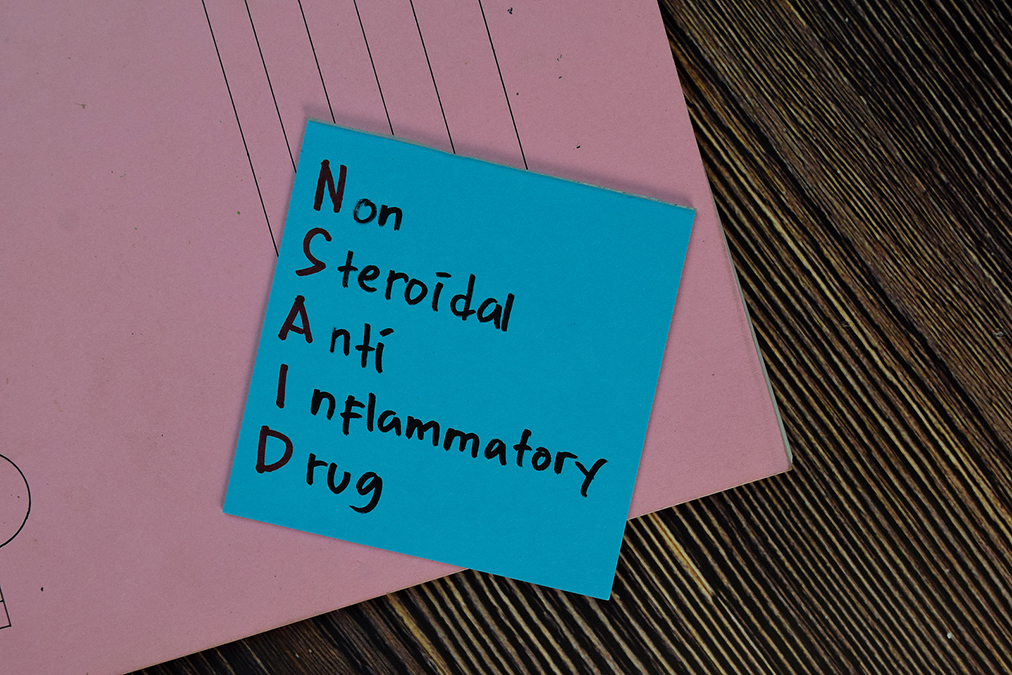 We tend to think that mild, over-the-counter medications are pretty safe.
We tend to think that mild, over-the-counter medications are pretty safe.
They may cause some minor side effects but they’re not going to kill us, are they?
Think again, because a new Danish study proves that a ‘safe’ pain killer that doctors often recommend to actually improve cardiovascular health is not just dangerous—it will make a minor heart attack lethal!
Recently, Danish researchers conducted a meta-analysis of the medical histories of over 60,000 patients who had survived one heart attack, to look for relationships between a second heart attack and the use of over-the-counter medications.
What they found was that for patients who were prescribed blood-thinning medications like aspirin following the first heart attack, the rate of significant bleeding events increased sharply.
They also saw that for many patients, there was a startling increased risk of suffering a second heart attack for patients who also took non-steroidal anti-inflammatory drugs (NSAIDs) like ibuprofen. Risk also increased for suffering stroke, systemic arterial emboli, and cardiovascular death.
Medical establishments have taken notice and have been strongly warning practitioners never to prescribe, and to advise against the use of, NSAIDs following a myocardial infarction (MI).
But aspirin is very often wrongly recommended by doctors for people who have cardiovascular health issues such as blood clots. If you’re taking aspirin on a daily basis, talk to your doctor about stopping it if you have ever suffered a stroke or heart attack.
So, what’s a person to do when trying to prevent stroke and/or heart attack, but also suffering from arthritis or other chronic pain conditions where NSAIDs are widely used?
The good news is that these conditions can be healed naturally:
Here is the best step-by-step strategy to reverse arthritis in 28 days…
Now for the heart issue, the most important thing is to lower blood pressure. Discover how three easy exercises drop blood pressure below 120/80—starting today…

 Overcoming IBD
Overcoming IBD Multiple Sclerosis
Multiple Sclerosis Banishing Bronchitis
Banishing Bronchitis Gum Disease Gone
Gum Disease Gone Overcoming Onychomycosis
Overcoming Onychomycosis Neuropathy No More
Neuropathy No More The Prostate Protocol
The Prostate Protocol Brain Booster
Brain Booster
 Ironbound
Ironbound
 Solution for Shingles
Solution for Shingles
 The Bone Density Solution
The Bone Density Solution
 The Ultimate Healing Protocol
The Ultimate Healing Protocol
 The Parkinson's Protocol
The Parkinson's Protocol
 The Chronic Kidney Disease Solution
The Chronic Kidney Disease Solution
 Overthrowing Anxiety
Overthrowing Anxiety The Fatty Liver Solution
The Fatty Liver Solution The Hypothyroidism Solution
The Hypothyroidism Solution
 The End of Gout
The End of Gout The Blood Pressure Program
The Blood Pressure Program
 The Oxigized Cholesterol Strategy
The Oxigized Cholesterol Strategy
 Stop Snoring And Sleep Apnea Program
Stop Snoring And Sleep Apnea Program
 The Arthritis Strategy
The Arthritis Strategy The Vertigo & Dizziness Program
The Vertigo & Dizziness Program The 3-Step Diabetes Strategy
The 3-Step Diabetes Strategy Hemorrhoids Healing Protocol
Hemorrhoids Healing Protocol The Erectile Dysfunction Master
The Erectile Dysfunction Master Weight Loss Breeze
Weight Loss Breeze The IBS Program
The IBS Program The Insomnia Program
The Insomnia Program The Migraine and Headache Program
The Migraine and Headache Program The Neck Pain Solution
The Neck Pain Solution The Menopause Solution
The Menopause Solution The Ejaculation Master
The Ejaculation Master The TMJ Solution
The TMJ Solution The Acid Reflux Solution
The Acid Reflux Solution The Fibromyalgia Solution
The Fibromyalgia Solution The Psoriasis Strategy
The Psoriasis Strategy